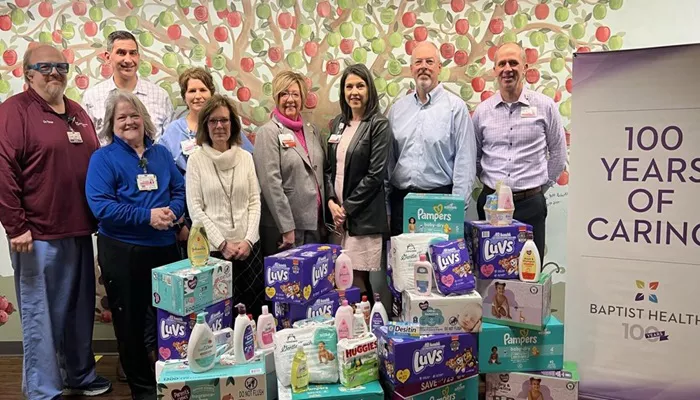The Eastern Iowa Baby Supply Drive, organized by a coalition of local groups including the AmeriCorps Immigrant Maternal Health Project, Johnson County Public Health, and the University of Iowa Health Care Family Care Center, will conclude on December 21.
The drive, which has already gathered essential baby items such as car seats, strollers, diapers, and formula, was spearheaded by Allison Largo, coordinator for the AmeriCorps Immigrant Maternal Health Project. The goal is to assist low-income and immigrant mothers in Iowa, many of whom face challenges navigating their new lives without support from family members.
Largo, who helped initiate the drive, said the response has been positive, with nearly 60 car seats — the most requested item — already collected.
The idea for the drive emerged after Largo noticed a lack of communication between local agencies that were seeing the same families. “Nobody was talking to each other,” she said. “We needed to do something in Iowa City because we’re the baby hub of Iowa. The University of Iowa hospital alone delivers 4,000 babies each year.”
On September 21, 2024, the first Eastern Iowa Baby Supply Drive officially launched.
Largo emphasized that the drive was particularly focused on helping mothers through the fall and winter months. This is especially important for immigrant mothers, who often lack family support in the U.S. “Many immigrant moms don’t have their own mothers or sisters here to support them. They don’t get a baby shower,” Largo explained. “Their husbands work multiple jobs, so the moms are usually home alone.”
One of the major challenges these mothers face is the mandatory car seat law in Iowa. Many are unaware of the requirement or cannot afford the car seat, which costs at least $250 for the first week of a baby’s life. Largo noted that in the rush to buy diapers, food, and other supplies, car seats often fall to the bottom of the list.
Rachel Lewis, a clinical practice leader at the Family Medicine Clinic, added that many low-income mothers also lack cribs, which are essential for infant safety. “Babies need to sleep in their own space to reduce the risk of sudden infant death syndrome (SIDS), but a lot of parents can’t afford that. So, babies end up sleeping with their parents, which is dangerous,” Lewis said. “Getting a crib or pack-and-play, along with a safe car seat, is critical.”
Lewis also highlighted the importance of these supplies for mothers’ mental health. “During the winter months, everyone’s mental health tends to decline a bit, especially pregnant women or those experiencing postpartum depression. Reducing stress in their lives could help prevent postpartum blues from developing into full depression,” she said.
Roberta Sloat, clinical services manager at Johnson County Public Health, discussed how cultural differences can affect immigrant mothers’ well-being. “Our medical system is very different from the ones in other countries, especially for women from African countries,” Sloat said. “It’s hard to navigate everything here, especially if you don’t speak the language.”
Sloat also pointed out the everyday struggles that many immigrant families face. “Simple things that we take for granted — like transportation, childcare, and food — can be major barriers to getting care,” she said. “Who’s going to go to a medical appointment if they’re hungry?”
Sloat believes the baby supply drive can make a real difference for these families. “Every time a mother doesn’t have to buy a car seat or a pack of diapers, it means she can spend that money on something else, like food. Every little bit helps.”
Looking ahead, Largo hopes the donations will last through 2025, continuing to support mothers in need throughout the year.
Related Topics:


